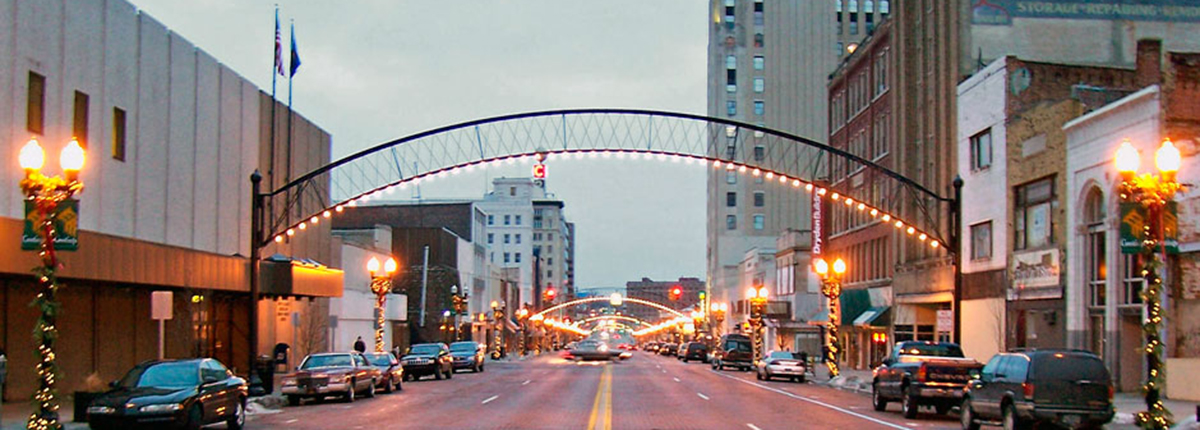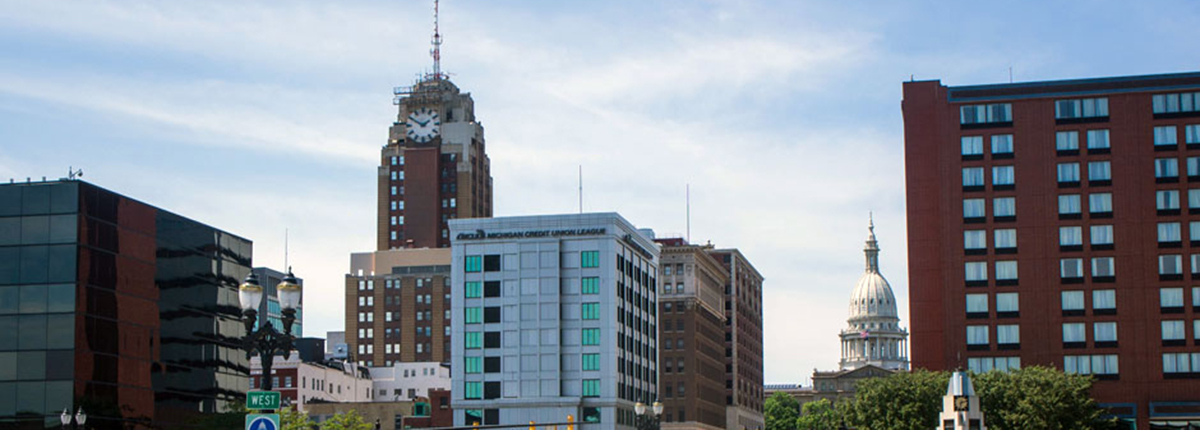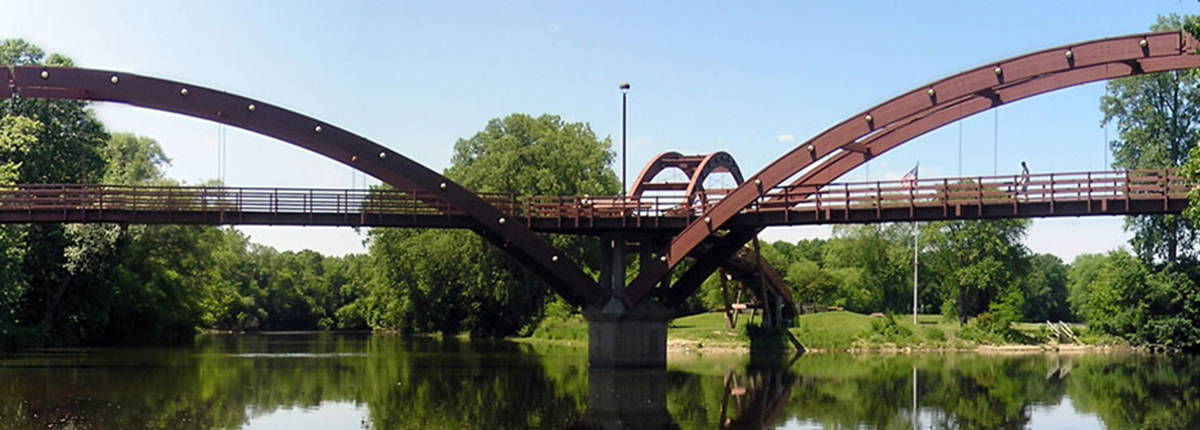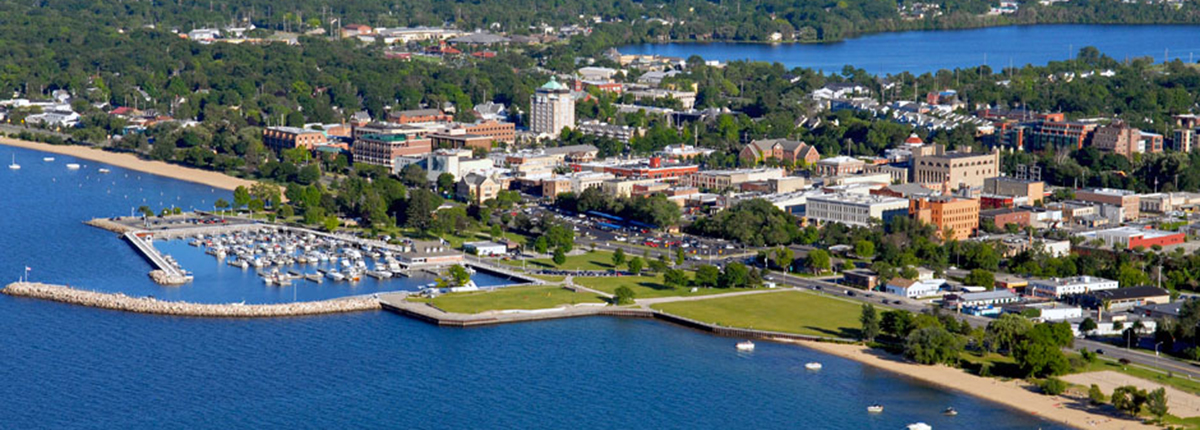The Department of Obstetrics, Gynecology and Reproductive Biology supports an integrated community-based clinical training program. In partnership with our community campuses across the state including Flint, Grand Rapids, Lansing, Kalamazoo, Midland, Traverse City and the Upper Peninsula, an average of two-hundred students are trained by over two-hundred and thirty faculty statewide. The diversity of our communities offers unique educational programs and clinical training, emphasizing excellence, mentorship, and diversity. Our third year clerkship program has been among the best rated clerkships at the College for the last ten years.
Detroit- Community Info
Flint - Community Info
As one of the original community campuses for Michigan State University, Michigan State University FlintMed is known for their friendly, professional, and experienced academic and clinical team of administrative staff, directors, faculty, medical centers, and other partners.
Michigan State University FlintMed educates medical students, residents and doctors in a diverse community setting that serves a significantly large underserved population which provides unique clinical experiences to our students. To learn more about our student programs, please click here or click here.
Grand Rapids - Community Info
One of the original community campus sites established by the College of Human Medicine (1971), Grand Rapids has a long tradition of outstanding programs in medical education. The Grand Rapids Campus implements its programs through the Spectrum Health Medical Education.
Each year up to 100 third- and fourth-year medical students are assigned to our campus. The Grand Rapids Campus offers all required rotations and electives more than 50 specialty and subspecialty options.
Throughout the community, more than 1,000 volunteer physician educators support the program.
Lansing - Community Info
The Department of Obstetrics, Gynecology and Reproductive Biology in the College of Human Medicine in Lansing, supports the integrated community based clinical training program in Obstetrics and Gynecology. In partnership with our seven community campuses across the state, our students and residents are trained by over 300 College of Human Medicine faculty statewide. This rich history of community faculty engagement of our students is fundamental to our national recognition as a leading community based medical school.
The Department offers to our students unique educational programs and clinical training that reflect the community based approach of the college, emphasizing excellence, hands on experiences, mentorship, diversity and blended learning resources that deliver a high quality medical education. Our students and residents train at Sparrow Hospital in Lansing.
Midland - Community Info
Midland Michigan headquarters are within MidMichigan Health, covering a 12-county region with medical centers in Alma, Clare, Gladwin and Midland, as well as urgent care centers, home care, nursing homes, physicians,medical offices and other specialty health services. Students rotating in Midland Regional will serve required and elective clerkships, under close supervision of experienced physicians, in four hospitals in the MidMichigan Health System.
Southeast Michigan
The new Southeast Michigan Campus will be based at Providence-Providence Park Hospital, Southfield. The hospital has a long history of excellence in medical education. With a large and committed academic and community attending physician faculty, 180 residents and fellows in 18 graduate medical education programs and a diverse patient population, the Southfield campus provides a dynamic and enriching educational experience. As a student here, you become part of the Providence "family" and find a supportive and friendly learning environment. Students will also have the opportunity for clinical experiences at Providence-Providence Park's Novi campus.
The city of Southfield is located in the heart of metropolitan Detroit and southeast Michigan. It provides easy access to both Detroit, in the midst of an exciting comeback, and neighboring suburbs. It is a diverse community with a thriving international business community of more than 9,000 businesses and over 100 "Fortune 500" companies. Southfield has more than 71,000 residents, 774 acres of park land, and more than 30 miles of biking, hiking, and nature trails.
Traverse City - Community Info
Integrating medical students into small communities allows for significant, meaningful patient contact that best prepares them for real world situations. Students are connected to an array of health care setting including hospitals, clinics, and physician offices. All students are exposed to clinical settings that are rich with opportunities for learning, hands-on experiences, and engaging in medical practice.
Third- and fourth-year medical students serve in clerkships, working with high-quality, committed physicians. Basic four-week clerkships include inpatient and ambulatory rotations in OB/GYN , Family Medicine, Psychiatry, Internal Medicine, Pediatrics, and Surgery. Advanced clerkships and electives complete the 77 - week program. Graduates receive an MD degree and go on to a residency program.
Upper Peninsula - Community Info
W. Donald Weston, M.D., former Dean of the MSU-CHM, believed doctors could be trained in a remote area like the Upper Peninsula, but only with the support and effort of the people of the area. With a shortage of physicians interested in rural primary care, the best way to recruit and retain physicians was to reach those individuals who were from a small-town, rural environment and were interested in medicine. These individuals could train and ultimately practice in a rural area.
The Upper Peninsula Health Education Corporation (UPHEC) was created in partnership with Michigan State University and is one of seven community campuses located throughout the state. We are a small community campus providing personal, individualized training to, and we are considered the one of the rural primary care program of Michigan State University. For more information on our program, please click here





